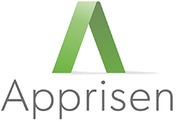- Debt minimum
- No minimum
- Program length
- 48 months (average)
- Monthly fee
- $30, on average
Cambridge Credit Counseling Corp. is a nonprofit firm founded in 1996 that offers credit counseling services in all 50 states. A search revealed no recent legal actions against the company, and it is associated with several reputable programs and industry trade organizations:
- Member of the National Foundation for Credit Counseling (NFCC), the Financial Counseling Association of America (FCAA) and the Partnership for Financial Education (PFE)
- Multiple housing counseling certifications from the U.S. Department of Housing and Urban Development (HUD) and NeighborWorks America
- Approved by the U.S. Department of Justice’s Executive Office of the United States Trustee Program (EOUST) to provide bankruptcy counseling
Unlike many debt relief companies, Cambridge Credit Counseling has no debt minimums to enroll in its services. You can get traditional credit counseling (e.g., help with budgeting and debt management), as well as housing and bankruptcy counseling to help you better understand your rights and options.
You can also enroll in a DMP with Cambridge Credit Counseling, which can help you pay off all your enrolled unsecured debts (e.g., credit cards, collection accounts) in an average of 48 months. You’ll pay an average one-time fee of $40 to enroll (up to no more than $75) and an average monthly fee of $30 (capped at $50) while enrolled.
Some of the things we like about Cambridge Credit Counseling are:
- No debt minimums
- Certified/approved by several reputable organizations
- Available in all 50 states
Some of the things to consider with Cambridge Credit Counseling are:
- Monthly fee up to $50
In an online review of Cambridge Credit Counseling, Chris of Dalton, Georgia, said: “Everything was extremely streamlined and easy. If I ever had any issues, all I do is make a very simple phone call. If I ask to delay this payment or if I get to skip a payment and try to pay it back, they help me with that. They didn't harass me to make sure everything was done. Every single time, the person that handled the call was friendly and polite. I'm very satisfied with the service. I'm not buried in debt, which is pretty great. It was much easier to reach that goal using Cambridge. If I ever find myself in that situation again, or if I needed it, I would absolutely 100% try them.”















